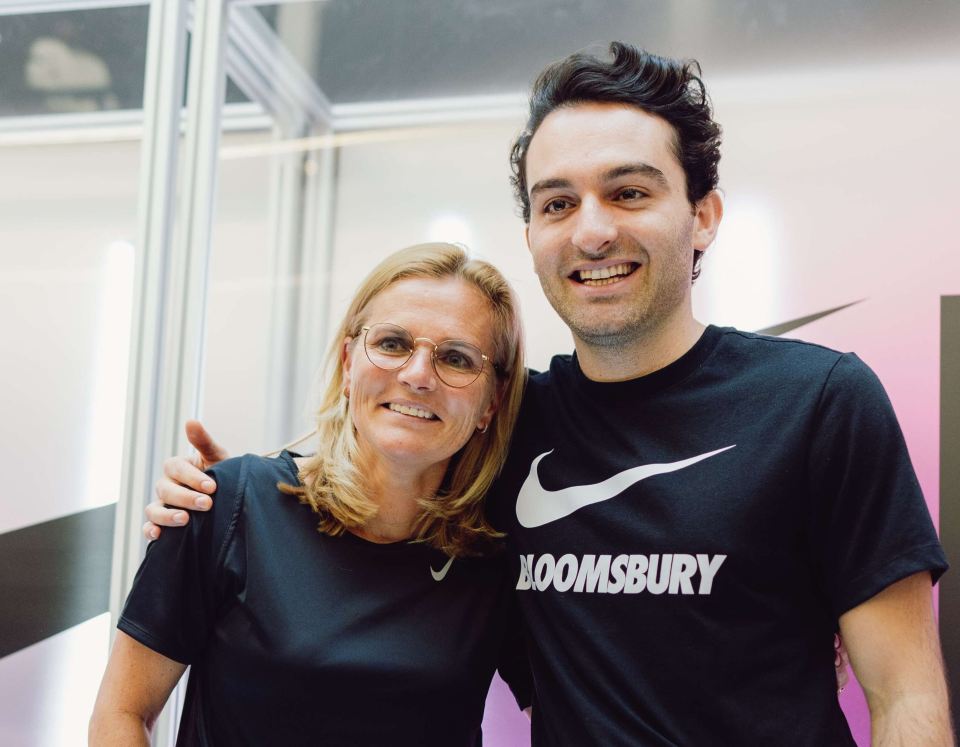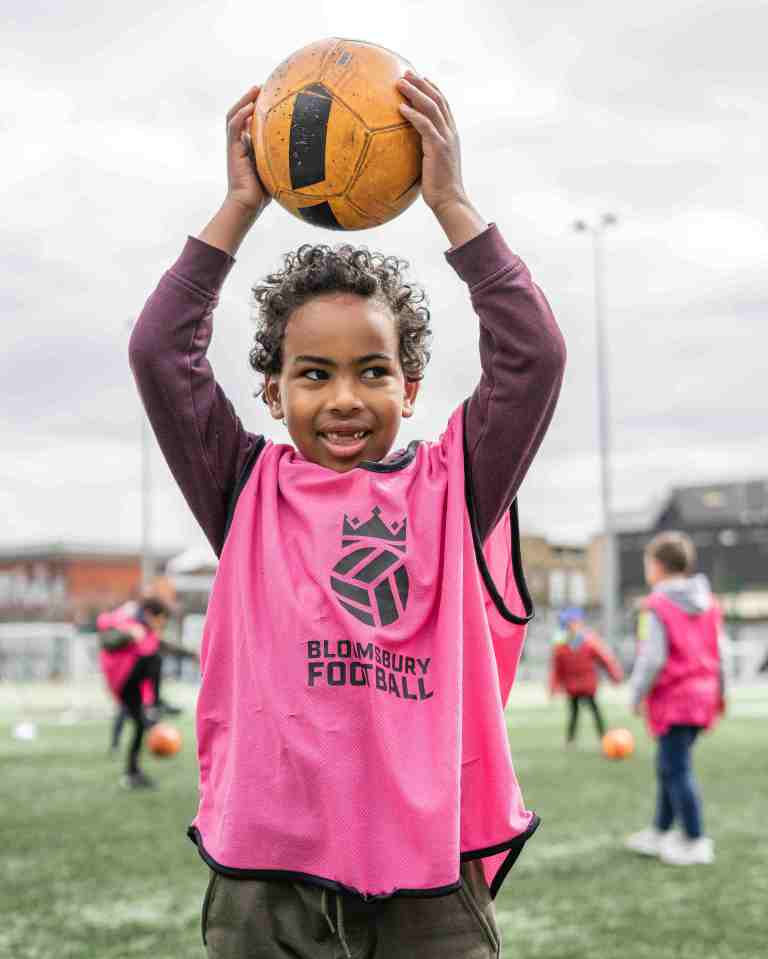Bloomsbury Football: Why Nike and Kier Starmer love London ‘coaching for all’ charity

Bloomsbury Football founder and CEO Charlie Hyman on the London-focused charity’s rapid rise, attracting support from Nike and Kier Starmer, and their plans for further expansion.
Charlie Hyman was still a schoolboy when he got his first taste of football coaching, collecting cones for his younger brother’s team in a local park. “I thought I would be bored but I absolutely loved it,” he says.
That chance encounter proved to be the first step on a journey that saw him qualify as a coach, work at Fulham FC’s foundation and then, after university, found Bloomsbury Football, now one of the UK’s fastest growing charities.
The ethos was simple: football has the power to improve young people’s lives, from physical and mental health to social cohesion and life skills, so no child should be turned away because they cannot afford to pay.
In August 2018, armed with £3,000 and a bag of balls, Hyman put on the first Bloomsbury Football session at a community centre in Camden Town. “A handful of children turned up – some who could afford to pay and some who couldn’t.”
Five years later, the charity is running sessions in seven London boroughs and reaching 5,000 children per week. The model hasn’t changed: around a quarter pay the full £10 a time, which is enough to subsidise coaching for some of the capital’s poorest kids.
It’s a system Hyman believes in strongly, while its rapid growth is evidence that it is serving a need. Revenue has doubled every year and has now reached £2.6m, enough to cover costs of £2.2m and set aside three months of reserve funding.
“Our model – what we’re doing and the way we’re doing it – I haven’t seen another organisation do,” says CEO Hyman, 27.
“There are lots of great charities doing amazing work – some using sport, some not; some tackling similar issues – but in terms of using football and the way we’re set up, I haven’t seen anything like it.”
Bloomsbury Football relies heavily on fundraising, with around 60 per cent of their income sourced from either purely philanthropic donations or corporate partnerships with brands such as Nike and Spanish football chiefs LaLiga.
Labour leader Kier Starmer is also a fan – not that Hyman believes that governments should be solely responsible for helping the needy. “To have endorsement from someone like that is brilliant and really lifts the credibility of the organisation,” he says.
“We’re never going to reach a utopia where everyone is happy and quality of life can’t be improved,” Hyman adds.
“The extent to which young people are facing these issues probably comes down to government, but there is, I think, a duty on those who can afford to help to also contribute; it’s not just for the government to solve these problems.
“Often people who have been successful are quite philanthropically minded and do support a lot of great causes. So I think it’s a mixed approach to solve it, and people and businesses should think about what they can do – even if it’s not as much as the government could do.”

Bloomsbury Football is also increasingly seeking to help refugee families, running football sessions for the children while giving their parents free workshops to help them, for instance, apply for a mobile phone in the UK.
The charity runs around 75 boys, girls and futsal teams; last season “7-10” players were picked up by professional clubs, Hyman says. “We don’t exist to create professional footballers but is always nice as a byproduct of our great programmes.”
If they unearth the next Bukayo Saka or Ella Toone, that will be considered a bonus. Their main goal for the next five years is to spread throughout the capital, increasing the number of children they are helping to 20,000 a week.
“We’ve got pretty ambitious plans to scale up,” he says. “It really does all come down to funding. Attracting bigger investments and longer commitments is the challenge for us in trying to help thousands more young people and really roll out across London.”
